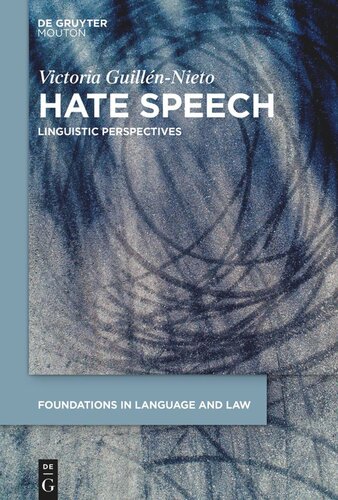

Most ebook files are in PDF format, so you can easily read them using various software such as Foxit Reader or directly on the Google Chrome browser.
Some ebook files are released by publishers in other formats such as .awz, .mobi, .epub, .fb2, etc. You may need to install specific software to read these formats on mobile/PC, such as Calibre.
Please read the tutorial at this link: https://ebookbell.com/faq
We offer FREE conversion to the popular formats you request; however, this may take some time. Therefore, right after payment, please email us, and we will try to provide the service as quickly as possible.
For some exceptional file formats or broken links (if any), please refrain from opening any disputes. Instead, email us first, and we will try to assist within a maximum of 6 hours.
EbookBell Team

4.1
80 reviewsHate speech has been extensively studied by disciplines such as social psychology, sociology, history, politics and law. Some significant areas of study have been the origins of hate speech in past and modern societies around the world; the way hate speech paves the way for harmful social movements; the socially destructive force of propaganda; and the legal responses to hate speech. On reviewing the literature, one major weakness stands out: hate speech, a crime perpetrated primarily by malicious and damaging language use, has no significant study in the field of linguistics. Historically, pragmatic theories have tended to address language as cooperative action, geared to reciprocally informative polite understanding. As a result of this idealized view of language, negative types of discourse such as harassment, defamation, hate speech, etc. have been neglected as objects of linguistic study. Since they go against social, moral and legal norms, many linguists have wrongly depicted those acts of wrong communication as unusual, anomalous or deviant when they are, in fact, usual and common in modern societies all over the world.
The book analyses the challenges legal practitioners and linguists must meet when dealing with hate speech, especially with the advent of new technologies and social networks, and takes a linguistic perspective by targeting the knowledge the linguist can provide that makes harassment actionable.